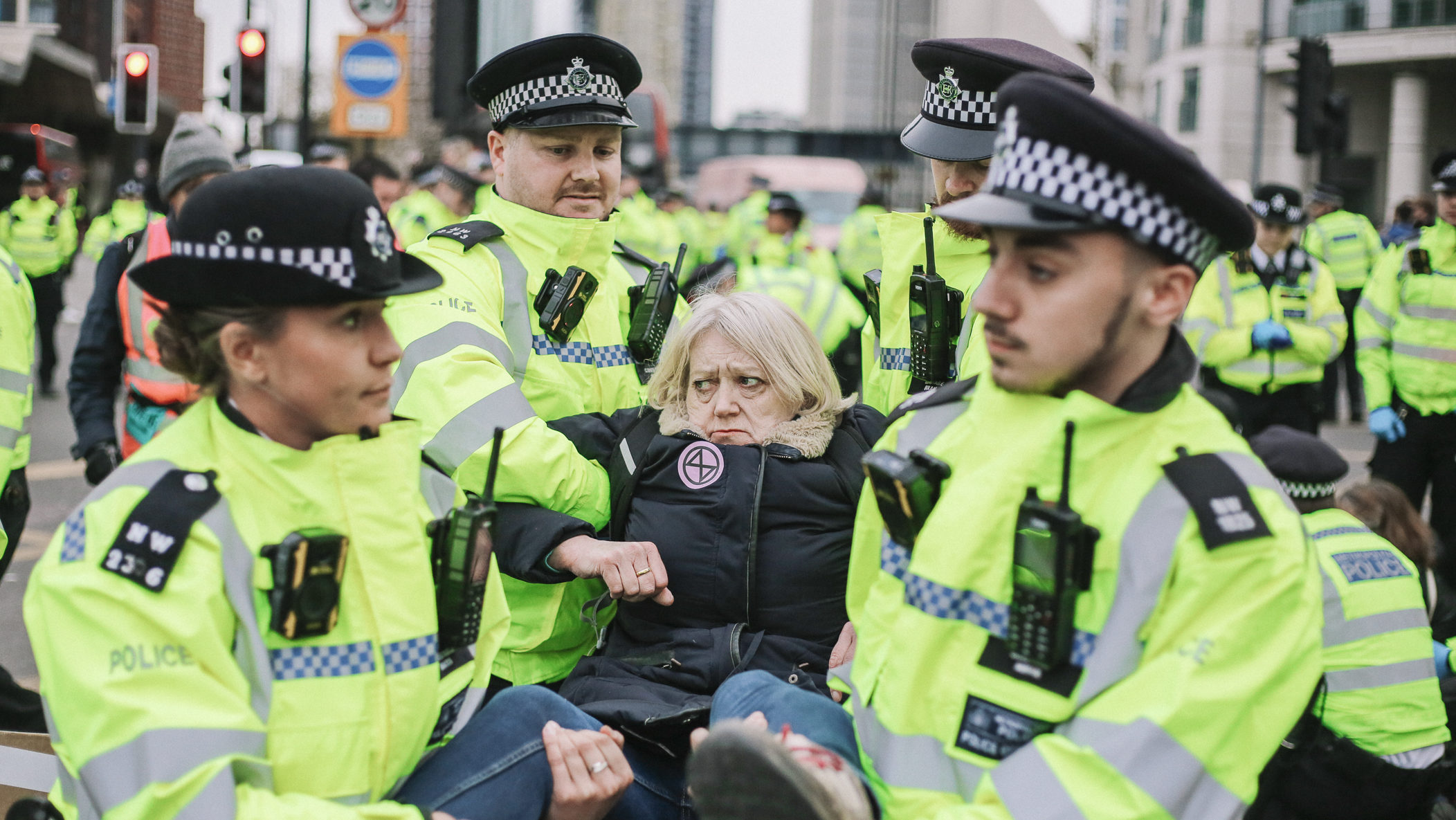The anti-protest laws introduced by then-home secretary Priti Patel sparked the nationwide Kill the Bill movement, and resistance from the House of Lords means the government must review their effectiveness after two years.
The Big Issue asked every police force in the UK if they had used powers under sections 73, 74, and 75 of the new act, from its coming into force in June, through to October. Only one example emerged: West Mercia.
However, West Mercia Police later admitted the powers it used actually pre-dated the bill to restrict a September march led by Robinson in Telford, and on a counter-protest by Stand Up To Racism.
Authorised by the force’s acting chief constable, the conditions were imposed over a fear that “the time, place and circumstances in which the procession is to be held, and its proposed route, may result in serious public disorder, damage to property, disruption to life of the community or intimidation”. These conditions were imposed, however, using old powers.
Restrictions on protests are relatively rare, for example from January 21 to April 21 2021, police placed restrictions on “no more than a dozen” of the 2,500 protests that took place, according to data from the National Police Chiefs’ Council. The Met Police imposed conditions on protests 15 times in 2019, according to data from HMICFRS.
Your support changes lives. Find out how you can help us help more people by signing up for a subscription
Advertising helps fund Big Issue’s mission to end poverty
The bill, introduced to give police greater powers to tackle disruptive protests, was branded an “orchestrated attack on the fundamental right to protest” during the Kill the Bill movement.
However, other laws introduced in the act have been used, including to arrest Just Stop Oil protesters for a new public nuisance offence. And campaigners have warned that even if unused, the more draconian powers still have a chilling effect on protests.
“All these new powers have a chilling effect, regardless of how often they’re used. While protest is not illegal, it is extremely worrying if people feel they can not take to the streets without fear of arrest, police harassment or criminalisation,” Netpol’s Emily Apple told The Big Issue.
Then-home secretary Priti Patel said the bill was needed to deal with “a significant change of protest tactics, with protesters exploiting gaps in the law which have led to disproportionate amounts of disruption.” Speaking in the House of Commons, she specifically mentioned protests by climate group Extinction Rebellion.
Get the latest news and insight into how the Big Issue magazine is made by signing up for the Inside Big Issue newsletter
Under the PCSC Act, police are able to place conditions on protests if the noise it generates “may result in serious disruption”. Breaching these conditions is a criminal offence.
Advertising helps fund Big Issue’s mission to end poverty
In June, anti-Brexit protester Steve Bray had his speakers seized by police outside Parliament, and said officers had cited the act – which had just come into force – as a reason he could not conduct a “noisy” protest. However, the Met’s response to The Big Issue said they had not formally used the noise-related powers to restrict any protests. After the event, police suggested Bray’s speakers had been taken under parts of the new law restricting protests outside parliament.
Jun Pang, policy and campaigns officer at human rights group Liberty, told The Big Issue: “Former senior police advisers and frontline officers also spoke out about their serious concerns about the practicalities of these restrictions, warning that they would be unworkable and further politicise the policing of public order. So in some ways it’s not surprising that these powers have been used so little.
“However, for as long as these measures remain in law, protesters will be at the mercy of police, who have the power to decide when a protest is ‘too noisy’ – and potentially to shut it down on that basis. Meanwhile, the government is pushing through even more extreme anti-protest measures in the Public Order Bill – featuring measures that yet, again, have been rejected by the police for being ineffective and infringing on human rights.”
A bitter fight saw Lords try to strip the measures from the bill on its way to becoming law. During one debate Lord Coaker, Labour’s home affairs spokesperson, told the Lords the noise provision “will not work and it is not needed”.
As a concession, the government was ordered to publish a report on the new laws within two years and present it to parliament.
Measures that were eventually pulled and did not find their way into the Policing Act have been resurrected in the government’s Public Order Bill, which is making its way through parliament. It includes measures to jail protesters for ‘locking on’, and to ban repeat offenders from attending protests.
Advertising helps fund Big Issue’s mission to end poverty









